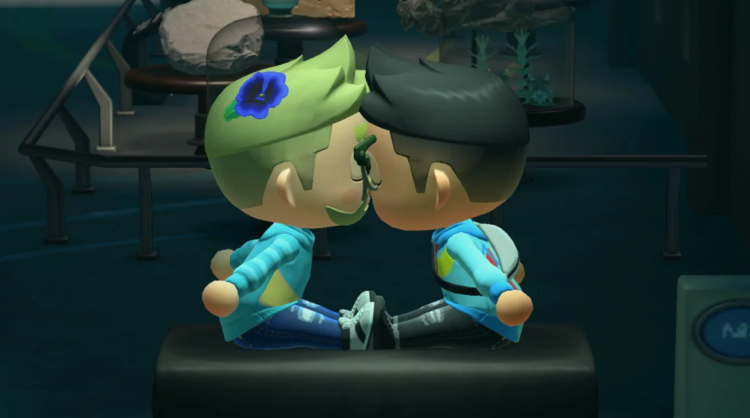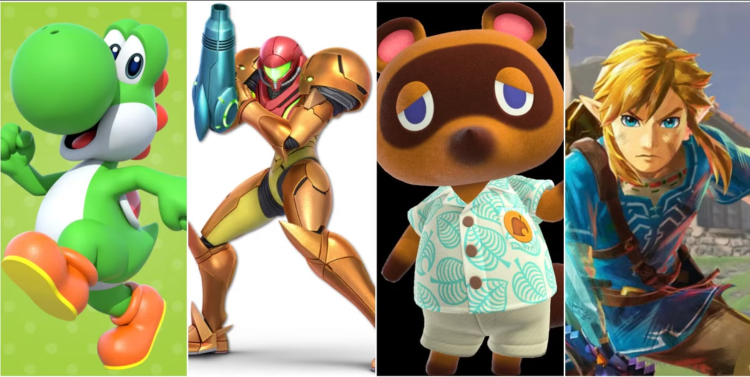Nintendo Username Ban: “Twink Link” Gets Switch 2 Player Permanently Blocked
Nintendo doesn’t joke around when it comes to protecting its family-friendly brand. The company has always kept tight control over how players interact online, and that includes what usernames you’re allowed to use. But a recent case shared by a Switch 2 owner shows just how far those rules might actually go.
According to a Reddit post by user Funaoe24, their entire Nintendo Switch 2 console was permanently banned from online services because their sister changed her username to “Twink Link.” That’s all it took, they say. No modding. No pirated games. Just a name. And now they can’t access any Nintendo services at all.
“I let everyone in my family use my Nintendo Switch 2 system, and as a result, my sister uses it. Her username was recently changed to Twink Link and... console ban,” the post reads.
What’s worse is what came next. Funaoe24 says they contacted Nintendo to try and reverse the decision. No dice. The answer they got: permanent system bans cannot be revoked. The only option they were given was to return the console and use cloud saves to transfer progress to a new system.
“I was told to return my system and use the latest save data cloud backups.”
This username ban wasn’t triggered by hacking or third-party tools, according to the user. And while we can’t verify that independently, they were upfront about the fact that nothing else was running on the system. Just a name referencing a long-running internet meme about Link’s appearance. The term “twink” is common slang and arguably harmless in this context, but that doesn’t mean it passes Nintendo’s filters.
If you’ve followed Nintendo’s enforcement history, this isn’t that surprising. As we explained in our previous material about why Nintendo might ignore you when you’re angry, the company often stands its ground when enforcing rules, even if they don’t explain exactly why. Their Terms of Service now explicitly allow the company to brick systems used in ways they deem inappropriate, including anything outside of “intended use.” That can cover modding, piracy, and now, apparently, usernames.
This kind of overreach isn’t new in the gaming world. Xbox Live, for example, used to have a reputation for nuking usernames with even the mildest double meanings. Back in the early 2010s, users with the word “gay,” “lesbian,” or even “XXX” in their name could get a ban with no warning. One famous example was a user whose gamertag included their real-life last name — “Gaywood” — and they were banned for “offensive content.” These kinds of filters often fail at context, and players get caught in the crossfire.

With Nintendo, it’s the same energy, just stricter and less forgiving.
This case is part of a pattern we’re seeing with the Switch 2 generation. Nintendo is making it clear that its crackdown is getting sharper. Their new ToS changes give them more legal room to act, and they’ve already started swinging hard. In fact, this is lining up with recent moves we’ve seen from Nintendo’s anti-piracy push. They've gone after ROM sites, jailbroken consoles, and mod creators. And now usernames?
The strange part is that there seems to be no warning system in place. No soft ban. No forced name change. Just a total lockout from all services. While that might be standard in Nintendo’s system enforcement playbook, it's the kind of thing that causes long-term trust issues between players and the platform.
It also makes the upcoming hardware cycle more unpredictable. The Nintendo Switch 2 Put to the Test by JerryRigEverything already showed us how physically durable the console is. But it turns out digital survivability is another story entirely. If a family member types the wrong word in a username field, that could be it.

The broader problem here is that Nintendo often doesn’t communicate clearly with users in these situations. They don’t explain bans in detail, don’t offer appeals, and keep everything behind layers of support scripts and prewritten policy. And with cases like this one blowing up online, it’s likely we’ll see more frustrated users realizing the consequences of small rule-breaks too late.
You can think of it like a speed trap in an empty town. Sure, you were technically over the limit, but there were no signs, no people around, and you weren’t causing harm. Still, the fine is the same, and there’s no one to talk to about it.
Our opinion?
This situation shows how Nintendo’s attempt to keep its online space “safe” can come at the cost of user goodwill. The enforcement here is extreme, and it’s likely to raise concerns among average players who aren’t trying to break rules but just don’t know where the invisible line is.
For a fanbase that spans families, young kids, and longtime Nintendo loyalists, the lack of communication is a weak point. Nintendo’s no-nonsense style is effective when it comes to blocking piracy, but when it hits casual users — especially with zero warning — it hurts the brand. Not everyone banned is a hacker. Sometimes, they’re just someone who picked the wrong nickname.
Until Nintendo adds more transparency, or at least some kind of layered warning system, expect more stories like this to bubble up online. And if you’re logging into your new Switch 2? Maybe think twice before referencing memes.

Comments